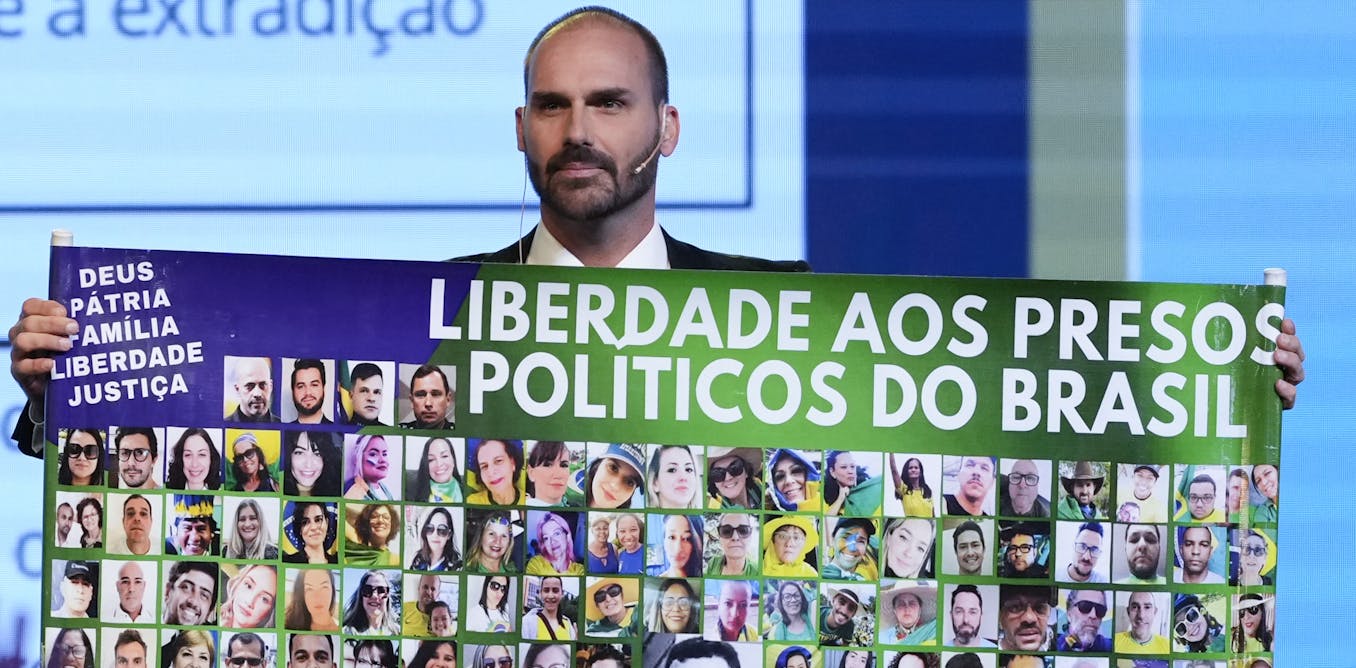
In a significant political development for Brazil, the attorney general’s office filed an indictment on February 18 against former President Jair Bolsonaro and 33 others. This crucial document has generated immense anticipation and represents a pivotal moment in Brazil’s political landscape. The contents of the indictment are not entirely new, echoing allegations previously outlined in a federal police report released last November.
The heart of the matter revolves around Bolsonaro’s accountability for a campaign undermining democratic norms that culminated in the January 8, 2023 events at the nation’s capital. This troubling journey began in 2021 when the Supreme Court reversed convictions against former President Luiz Inácio Lula da Silva, opening the door for his political resurgence.
In response, Bolsonaro reportedly adopted a confrontational approach, questioning the legitimacy of the Supreme Court and casting doubt on electronic voting systems. The indictment portrays this as a growing trend aimed at eroding democratic values.
What makes this indictment particularly noteworthy is its characterization of Bolsonaro’s actions as a potential coup attempt. This situation is unique, as it doesn’t conform to typical coup models, such as military uprisings or legislative shutdowns. Instead, as highlighted in a detailed 272-page report by Attorney General Paulo Gonet, disinformation played a key role. The goal was to sow distrust in governmental institutions and provoke social unrest, all in a bid to maintain power following electoral defeat.
Notably, the indictment revealed that high-ranking military personnel were allegedly involved in this anti-democratic agenda, with a strategic plan named “Green and Yellow Dagger”. This scheme supposedly aimed for drastic actions against political adversaries, including assassination plots targeting justice and electoral winners. The presence of nearly 24 military officers within the 34 individuals indicted underscores the deep ties between military influence and politics in Brazil.
Bolsonaro continues to deny these accusations, framing them as an attack against his political career. This portrayal aligns with a broader narrative often embraced by populist leaders, where victimhood becomes a rallying cry for supporters. As the political landscape evolves, Bolsonaro remains a formidable figure, potentially influencing the upcoming electoral cycle. The next presidential elections are just around the corner, and his supporters are gearing up for what could be a tumultuous political showdown against the current government.
One must also keep an eye on international reactions, particularly from the U.S. administration. Historically, American political dynamics have played a significant role in shaping Brazilian democracy, and as the country heads toward the 2026 elections, the implications of these developments will be watched closely worldwide.
As this political saga continues to unfold, it underscores the importance of vigilance in protecting democratic processes, emphasizing the resilience of Brazil’s electorate amidst challenges.
#Politics #WorldNews


